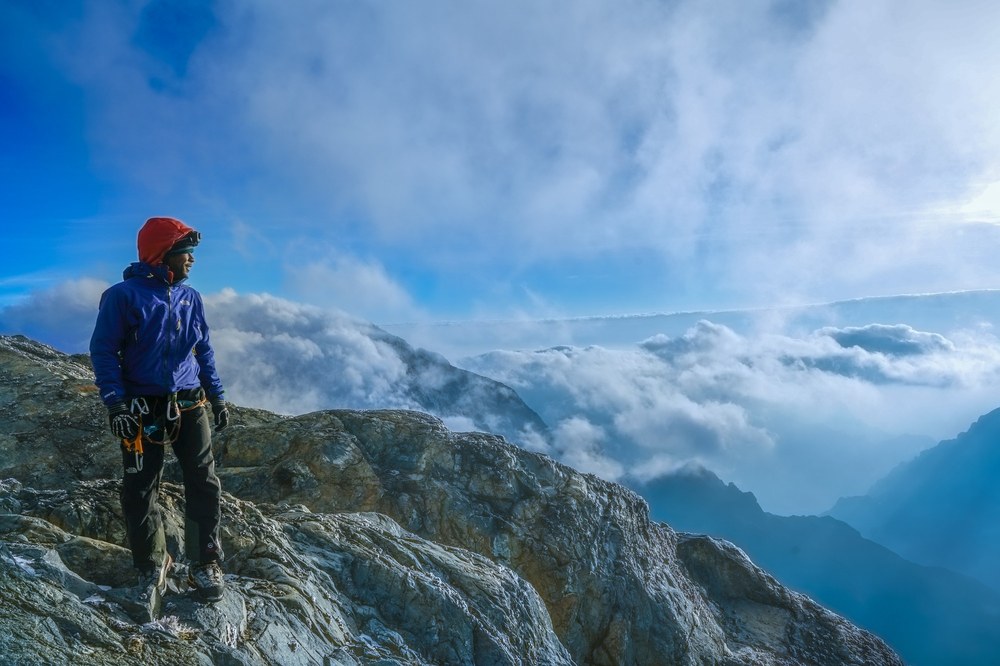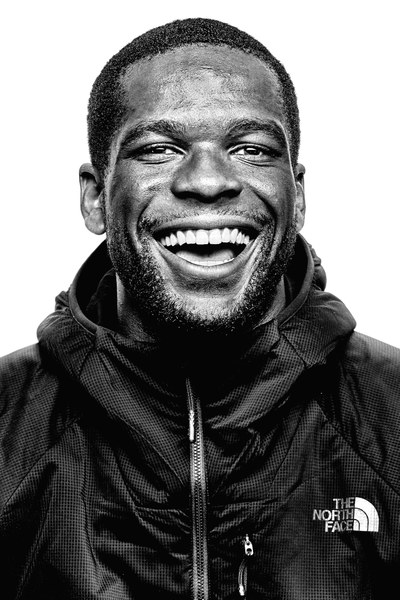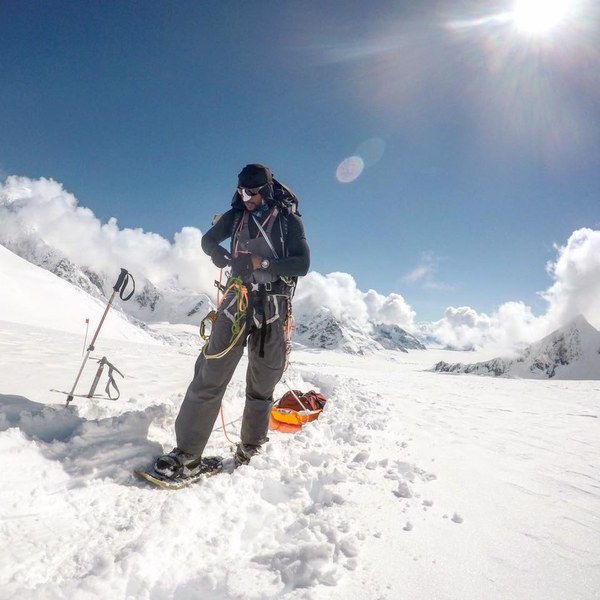
The Mountaineers first met Tyrhee Moore in The Adventure Gap, a book we published chronicling the first all African-American summit attempt on Denali. Tyrhee was among the youngest of nine climbers, ranging in age from 17 to 65, to attempt the climb America’s highest peak. Since the 2013 expedition, his outdoor resume has grown to include Grand Teton, Mount Kilimanjaro, and Aconcagua. His experiences and challenges in the outdoors have garnered national attention, and he’s risen as an advocate for increasing interest and advocacy amongst black youth in outdoor spaces. Today Tyrhee speaks around the country on topics regarding the adventure gap and conservation leadership, and is a champion for increasing diversity in the outdoors.
The conversation around people of color in the outdoors has rightfully gained a ton of momentum in recent years. However, with all of this great momentum, being in the midst of many conversations, gatherings, outings, and the like, I started to become exhausted. I needed a break. I needed time away from the conversation. A conversation that I’ve been having since I was 18 and inadvertently before that through casual encounters with white counterparts on my regular hikes. Explaining who I was and why I was out on the trail.
 The North Face team head shot. Photo by Clayton Boyd.
The North Face team head shot. Photo by Clayton Boyd.
This topic has been at the forefront of my work for quite some time now, and it has not been, and still isn’t, an easy issue to address. The very existence of our human race and of our planet is at stake; this isn't the time to be tired. However, like any big expedition, I must pace myself, I must practice self-care, and take the time to listen to mind, body, and soul.
I needed to remember why this conversation mattered so much to me.
And so, last month I set out to find myself. My journey led me to the Rwenzori Mountain Range, which lies on the border between Uganda and the Democratic Republic of the Congo. It consists of six massifs that all sit roughly at 16,000ft of elevation. Mt. Stanley, the highest peak, stands at 16,762 ft. As a collective, they make up Africa’s highest mountain range. These mountains hold some of the continent’s last existing glaciers.
Back in June 2015 I traveled to Tanzania to climb Kilimanjaro immediately after graduating from college. This was a really exciting time in my life - done with college, no more worries, I was headed home to the “motherland”. I had heard so many incredible stories of Kilimanjaro and always knew I wanted to make it to Tanzania. However, never in a million years did I know what climbing on a mountain like Kili would do to me. The actual climb itself felt pretty standard: early mornings, slow pace, long hikes - but what made this climb significant was the feeling of being in the majority. To be on a mountain, in a wild space, and not feel like my existence needed to be explained. It was unusual to not question my moment in space, not having to wonder if someone was staring at me from behind; odd to no longer be one of the few folks who went into their tent at night a shade of purple because our sunscreen wasn't the most absorbent.
My time on Kilimanjaro was special because my focus was solely on the experience itself. Instead of being distracted with the usual pressures that come with being a person of color in the outdoors, I had the opportunity to breathe. I was able to be fully immersed in every step taken and could pay attention to every breath that left my body. For the first time, I didn’t have to carry any additional "weight" up a mountain.
I wanted that experience again. To remember how it felt to see so many people of color who were experts in the outdoors - people who lived, slept, and worked in the mountains. For them, the outdoors was all they knew - it was not a question whether they belonged there or not. I was inspired.
I hadn’t heard much about the Rwenzori’s before I began planning to go. A friend put Rwenzori on my radar, and since that moment I couldn’t get these mountains out of my mind. I instantly thought about Kilimanjaro and what that experience had been like for me, and I began to yearn for that feeling once again. I needed to recreate that space, but this time I wanted to be intentional and share this journey with everyone here in the U.S. who wasn’t taking a self-care break, yet who was still having these difficult conversations, dedicating their lives to the work of bridging the adventure gap.
Ironically, I traveled 7,000 miles to another country on another continent and not once did I hear the question: “What brought you here” - a question that black folks get over and over again in the U.S. Our country. Our home. While in Uganda I learned the answer to this question without even being asked. I was born to love the earth just as my ancestors.
 Pulling a sled on the Kahiltna Glacier, Denali National Park. Photo courtesy of Tyrhee Moore.
Pulling a sled on the Kahiltna Glacier, Denali National Park. Photo courtesy of Tyrhee Moore.
There is magic that lives within the Rwenzoris. Those mountaineers, those porters, those villagers, all helped solidify my being. Throughout my time in the Rwenzori and Uganda, I experienced what it felt like to truly live off of the earth. To drink from its flowing rivers and to feast from its lush green forest. Everyone in those mountains seemed so connected with nature, through diet, labor, transportation – through all of their everyday functions. It confirmed my personal existence in the outdoors. I belong here, I belong outside.
I thank every single person I crossed paths with who made my experience so special. People who have studied nature in universities, who have mountaineered for decades, people who have fetched water in these mountains since they learned to walk. This was special. You made me feel at home. You have shown me that the “adventure gap” in the U.S. is manmade and if my country created this issue, we damn sure can fix it.
To learn more about Tyrhee, visit his website at www.tyrheemoore.com. You can also read our 2014 magazine story about Tyrhee and another member of the Expedition Denali team.
This article originally appeared in our Fall 2018 issue of Mountaineer Magazine. To view the original article in magazine form and read more stories from our publication, click here.
 Tyrhee Moore
Tyrhee Moore